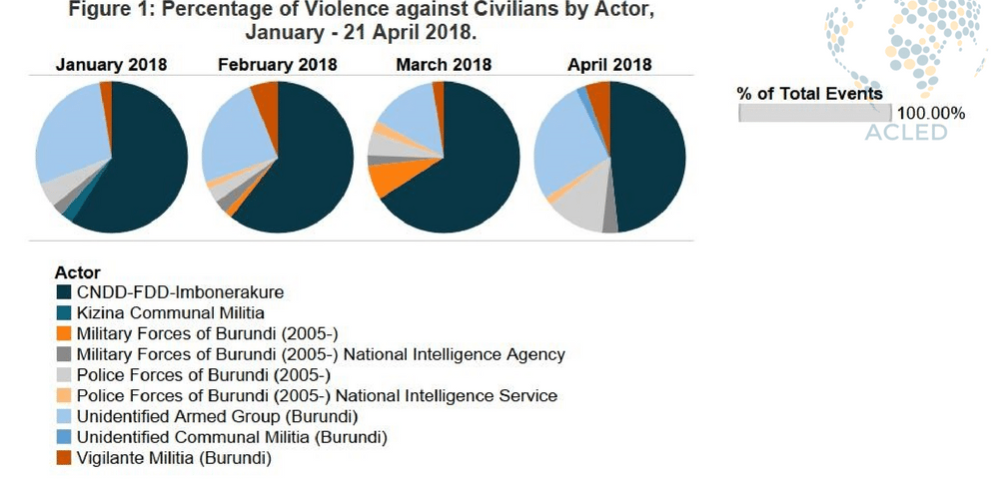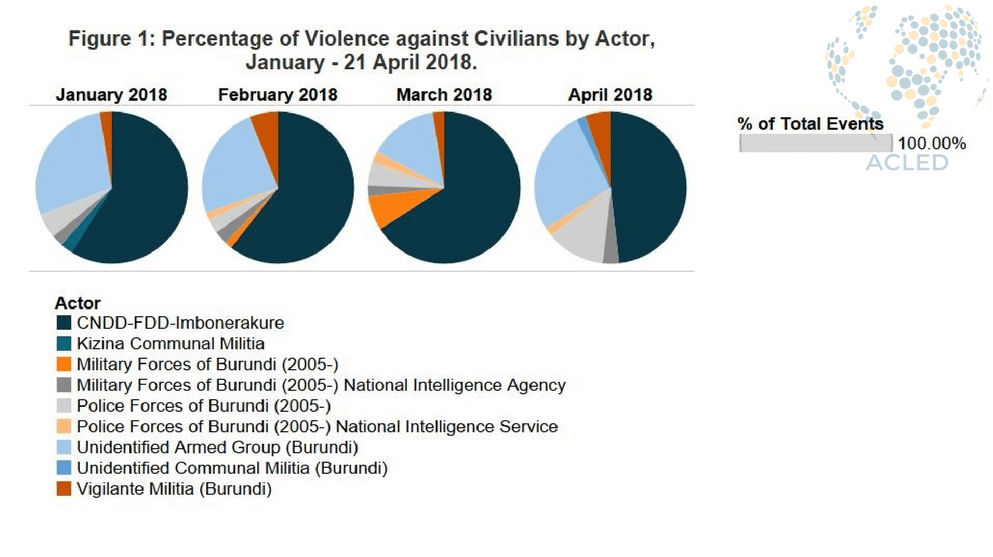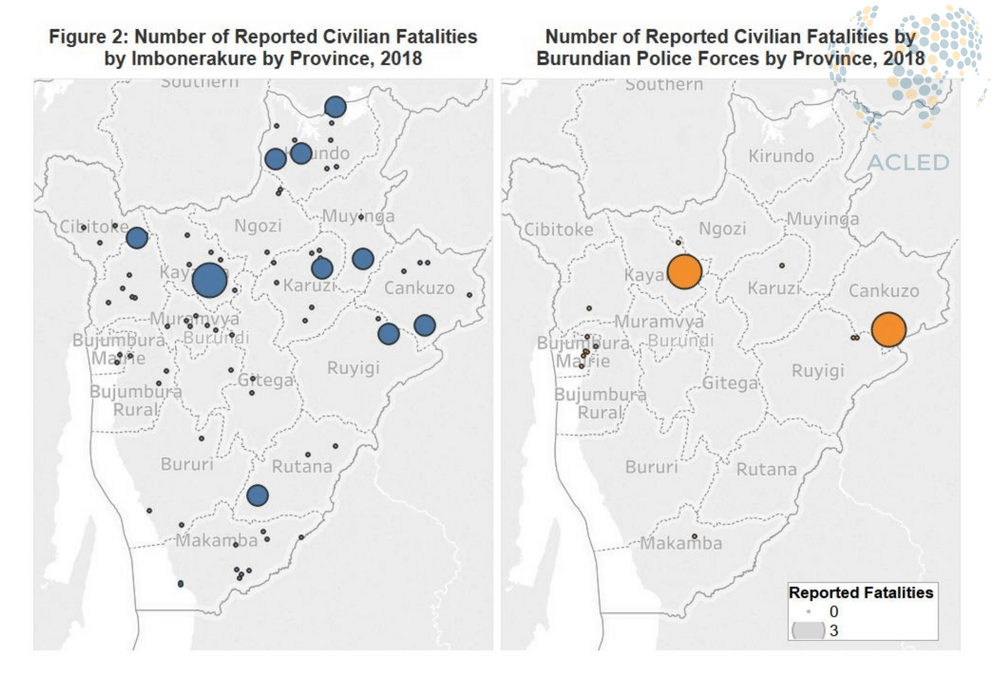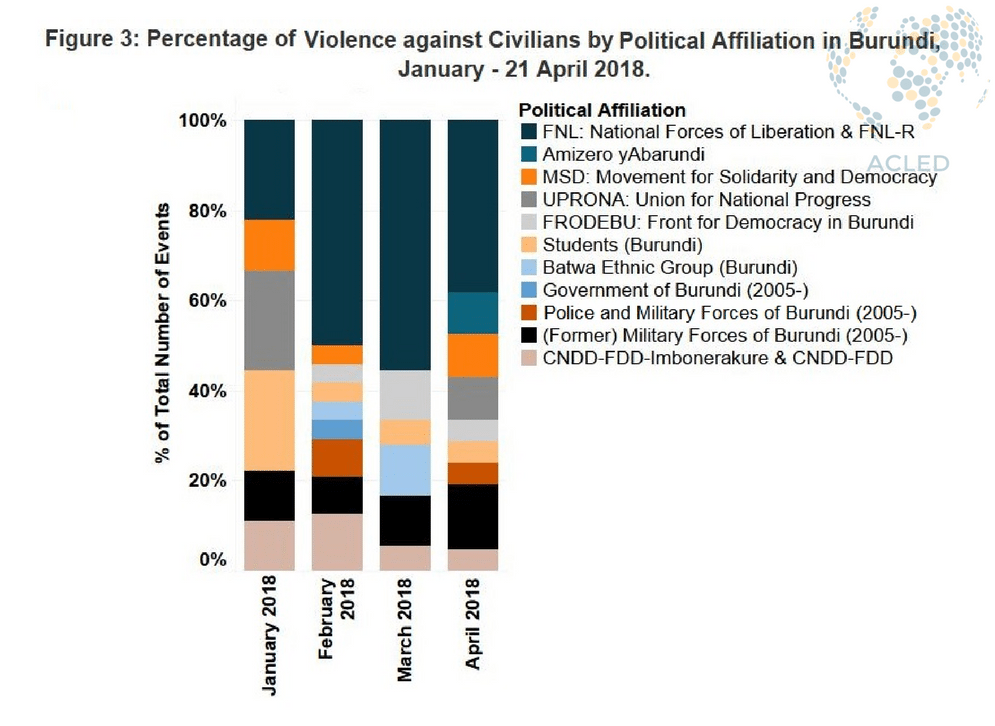The first two weeks of April witnessed a sharp increase in the number of violent events in Burundi, as the country prepares to vote in the constitutional referendum on 17 May. The vote will consider support for: 1) reintroducing the post of Prime Minister; 2) reducing the number of vice presidents from two to one; 3) increasing the duration of the presidential term from 5 to 7 years, and restricting presidents to two consecutive terms. Yet, the will apply going forward, meaning that President Nkurunziza (in office since 2005 and having served 3 terms) can stand for re-election. It may also ban coalitions of opposition parties. Official campaigning for the referendum begins on 1 May and will continue for two weeks. Opposition to the constitutional amendments is likely to be silenced, as many voice that campaigning for ‘no’ is met with repression (Global Voices, 2 February 2018).
Widespread repression is typically faciliated by the regime party’s (CNDD-FDD) youth wing –the Imbonerakure. Imbonerakure youth intimidate the population public punishments, beatings, arbitrary arrests, raids and the violent imposition of night time curfews. At a meeting on 20 April, the president of the CNDD-FDD party urged Imbonerakure youth to remain vigilant against anyone trying to disrupt the election (RPA, 23 April 2018). This suggests that Imbonerakure youth will continue to play a leading role in violence during the electoral period in May (see Figure 2 for fatalities by Province).
This group has been publicly active since 2015, and this year, their activity peaked in February 2018 and has remained high through April. They are responsible for 58% of violence against civilians in 2018, and present in each of Burundi’s 18 provinces. However, from the beginning of April, Imbonerakure violence decreased by nearly 20%, as Burundian police forces took a more active role in repressive activity (see Figure 1). This increased role for police forces happened alongside the Burundi parliament’s 18 April vote to expand the power of security forces to carry out night raids without a search warrant (The East African, 19 April 2018).
AfricaAnalysisCivilians At RiskConflict MonitoringEthnic MilitiasFocus On MilitiasPolitical StabilityPro-Government MilitiasUnidentified Armed GroupsVigilante MilitiasViolence Against Civilians









